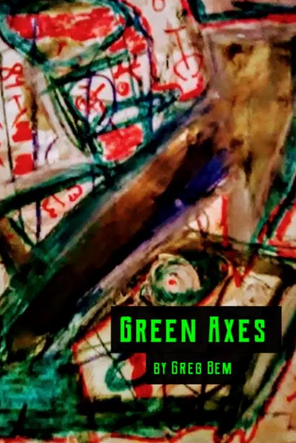My second full-length, printed book has appeared.
I am excited to announce the release of my next poetry publication Green Axes! Thanks to Red at Alien Buddha Press for agreeing to work with me on the poems and the overall structure of the book. As the title of this post suggests, these poems are derived from shadow and expanse. They are horrific and they are pastoral, sourced from a handful of local meditations and remote travel episodes.
You can read some of the poems from Green Axes in this Alien Buddha showcase.
The book is available to order via Amazon.
Some history.
This has been a long time coming. I first wrote these poems while living in the Greenhouse, the same apartment I wrote the poems in my six-part Construction series. Pondering the intersections of stasis and outward movement (pre-pandemic, no less!), I came up with several sequences of works that captured both confessional sentiment and a more tempered, objective experience. I intentionally approached these poems through a lens of horror and a tongue of cynicism, though I think neither captures the full range of the inevitable language.
An amassing of poems, a pseudo-collection. I released the predecessor, Green Axis, which is available for free (via open license), and immediately felt the need to gut this scope, this range, and carve it into something more precise, an embodiment of the zone I was seeking to know. The editing process became the next landscape and captured what I originally felt in the poems. Green Axes represents those hacked and chopped actions and processes and is the true collection, the core.
I have never really felt confident about a home for this collection. I set the poems aside but held them as a weight or lure in the digital archive–this feels long ago. Alien Buddha appeared with aligned aesthetics, more so than previously. And now here we are.
On another note, these poems were written before the poems in Of Spray and Mist, so seeing their release also comes with a healthy dose of bafflement regarding texture and the inward identity contained in any writing. Time is that moment of the horrific, that strange reflection, I suppose! In tandem and in conjunction, I feel the books rest well with one another: they both represent a couple (but not all) key facets of my writing and reveal values, interests, and (on a simpler note) different styles that I have practiced as an active writer.
I’m overjoyed to see this new collection come to fruition.
